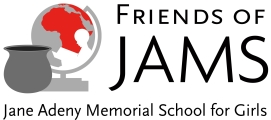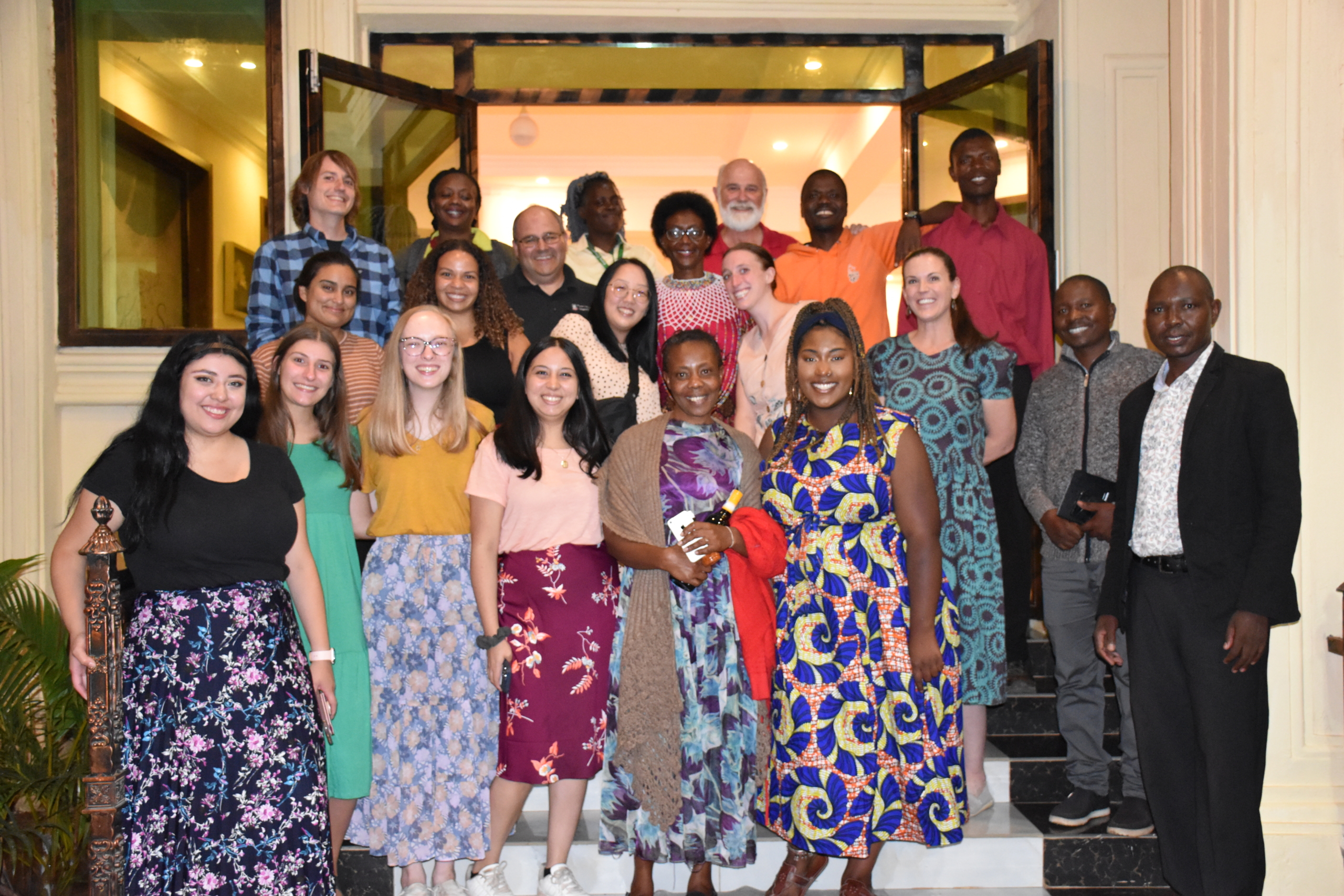
A visit from American teachers and teachers-in-training in summer 2022 helped to introduce some new techniques and approaches to Jane Adeny Memorial School. Three Northern Illinois University (NIU) faculty members led a group of seven pre-service teachers and seven practicing teachers, who are also graduate and undergraduate students at NIU.
They spent five weeks in East Africa, half the time in Tanzanian schools and half the time in Kenya as part of a U.S. Department of State Fulbright-Hayes grant program.
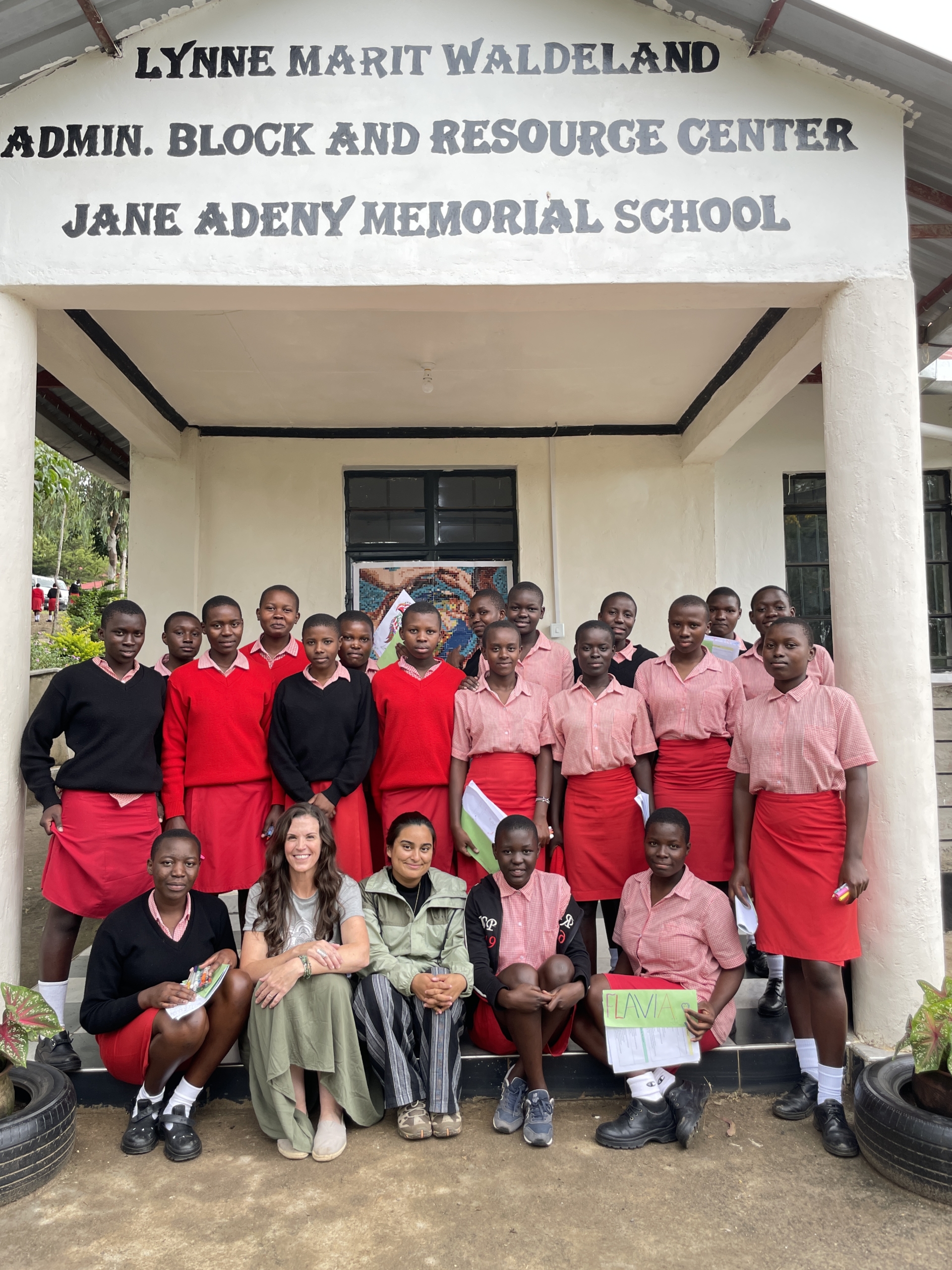
The primary teaching technique in East African schools is “rote learning.” Teachers lecture and supervise reading. Students listen, read, and then repeat memorized facts and ideas on tests. In Kenya, rigorous national tests that qualify students for high school and college assess only the definitions, ideas, and facts in the official curriculum.
Kenyan teachers often feel overwhelmed by the amount of content they must cover with their students and believe they don’t have enough time for active learning techniques.
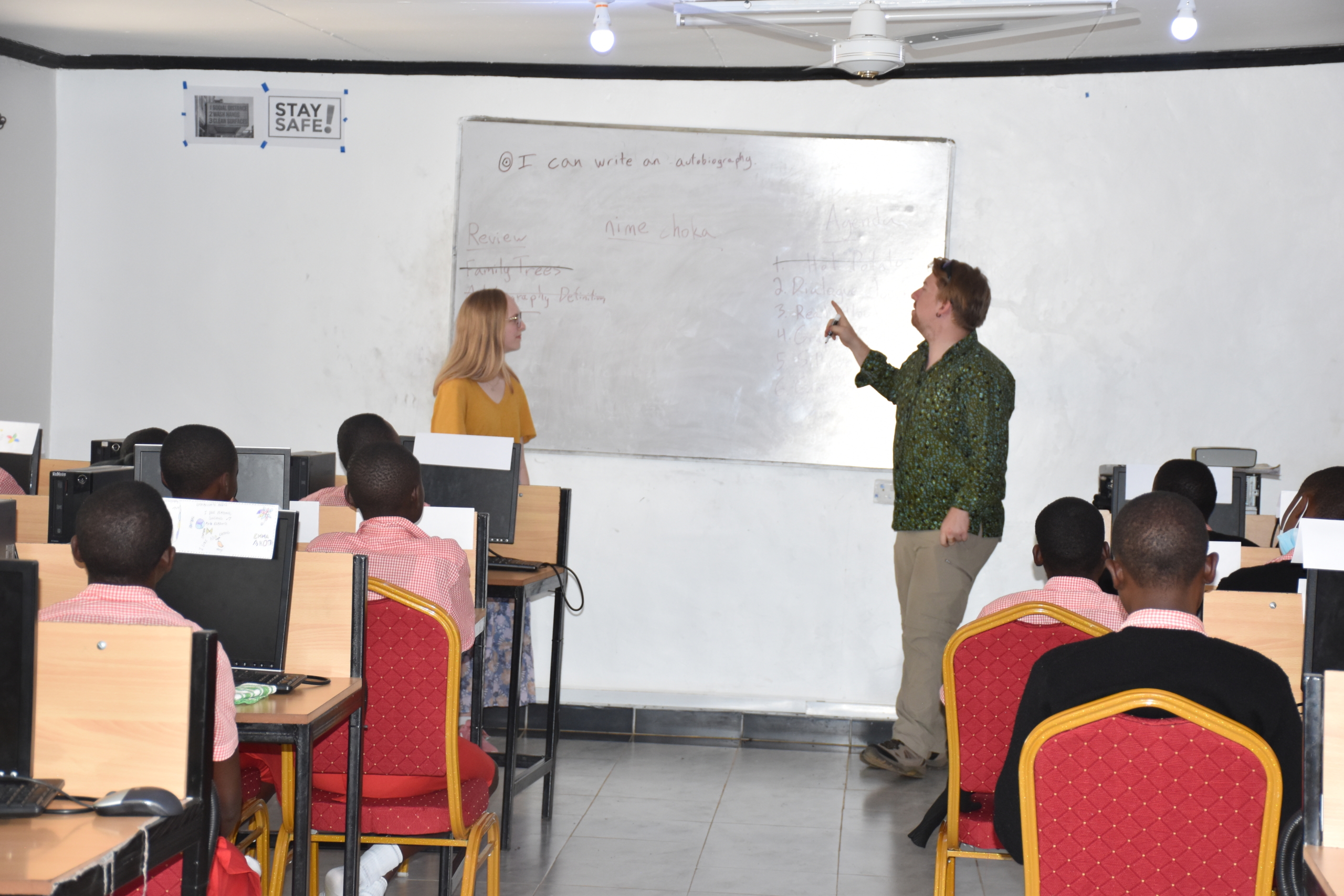
One teaching assignment for NIU’s team was to assist JAMS students in writing autobiographies. This might sound like a mundane activity, but it was quite unlike typical expectations in East African classrooms. This assignment helped JAMS students practice their English reading, writing, and expressive language skills and also helped them articulate their experiences and aspirations for the future.
NIU Professor James Cohen explained, “NIU’s delegation was assigned to lead Kenyan and Tanzanian students in creating dialogue journals, where students and teachers exchange messages with each other, in addition to writing autobiographies. The reason I chose that activity was because, in the curriculum of both Tanzania and Kenya, students never see themselves. They see everything as facts, and they have to memorize those facts – and that’s it. They never, ever see themselves.”
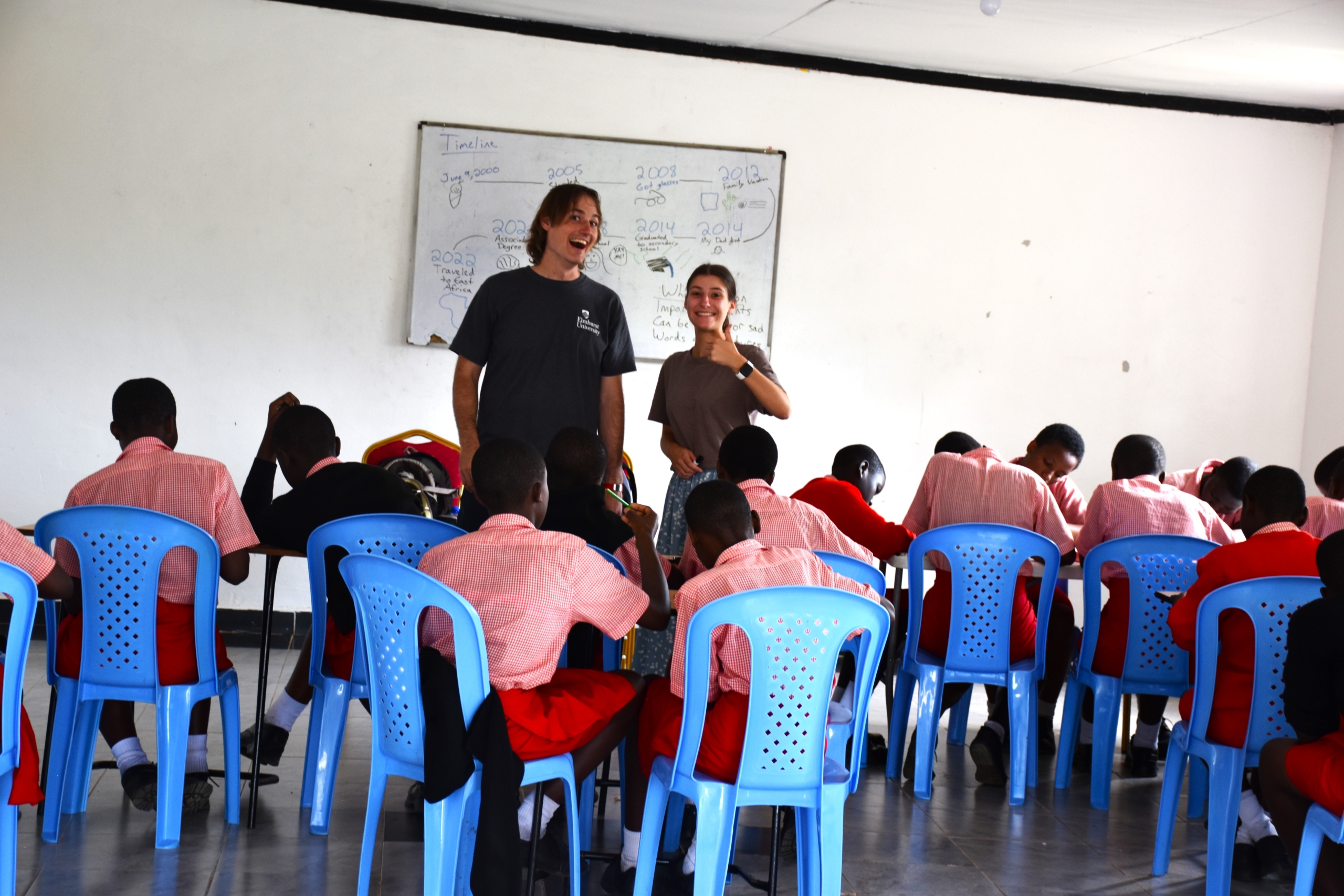
The NIU teaching teams started each class with warmup activities that helped them get to know the students and helped the students feel more comfortable talking about themselves, their lives, and their goals. Teacher Shannon Petry said that the in-class warmups and dialogues helped the JAMS students realize their lives have meaning and that hard work can help them achieve their goals.
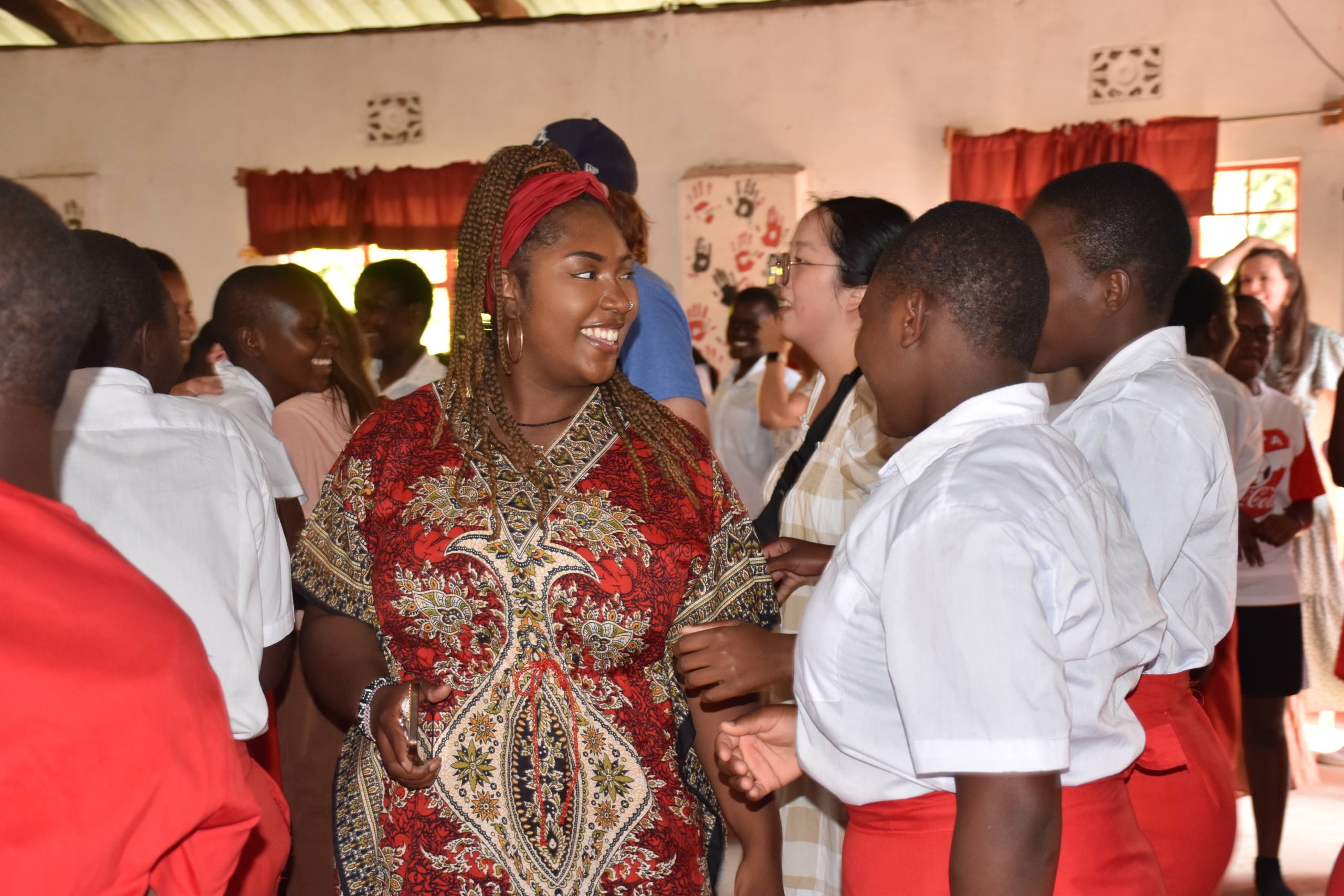
NIU graduate student Lonzha Dowthard guided JAMS students in journaling activities where they described childhood experiences, daily lives, and aspirations. “The hardships the girls face there was also something that really stopped me. I had read about the challenges in girls’ lives in my African history classes, but I didn’t think it was still prevalent today,” she said. “The girls opened up to me. A lot of girls wanted to be lawyers and doctors and soldiers, but they
The NIU team reported that JAMS students demonstrated writing skills that far exceeded those at other African schools they visited. “They were miles ahead . . . when it came to their understanding and use of English. You could just tell in their writing what they care about in life.”
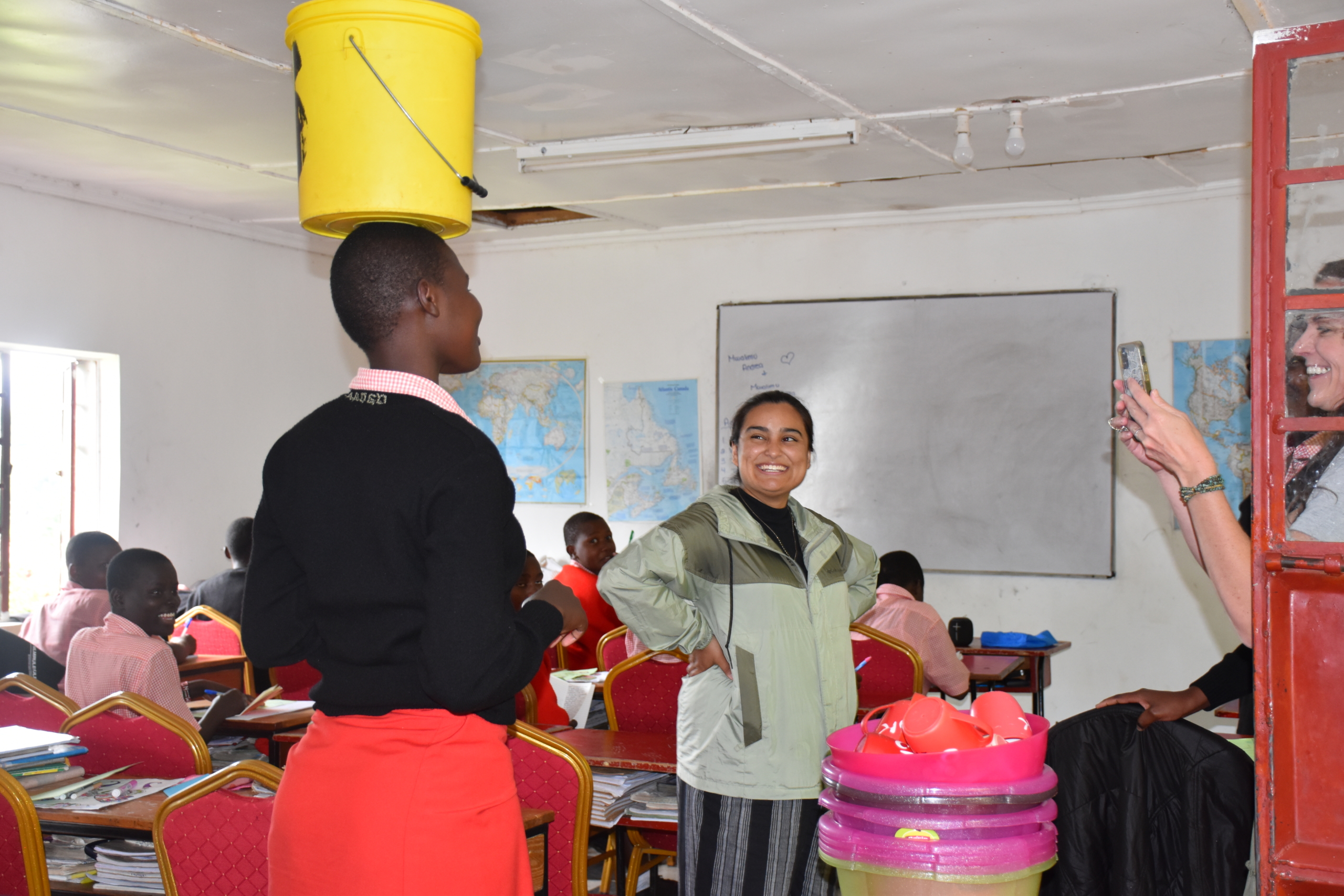
East African teachers, however, raised questions. NIU Professor and JAMS Founder Dr. Teresa Wasonga commented, “JAMS teachers kept saying that they have so much new info to deliver, how do they have time to find out what students already know? I countered, ‘If I talk for 40 minutes, are students actually learning for 40 minutes? Are they still listening? Does 40 minutes of talking equal 40 minutes of learning?’ Seeing the NIU student-teachers interacting so differently, laughing and ‘playing,’ the JAMS teachers recognized that their students can learn in many ways. They saw how engaged and excited the JAMS students were. This was a huge plus.”
The NIU Fulbright-Hayes visit to JAMS enriched the learning experiences of JAMS students and sparked ideas for JAMS teachers that will reap rewards going forward.
